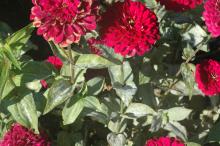

Information contained on the label includes: What you need to know is that the US EPA must approve the label. The product label is a legal document required on every pesticide product produced and sold in the US. This is common where the user fails to read or follow the instructions on the product label.

While they protect your plants and home, when used in the wrong way, they can lead to plant injury. Pesticides contain poisons in the form of synthetic compounds. As a result, farmers will not lose the entire crops of the season. Pesticides prevent the spread of disease and repel insects. In this post, we discuss if pesticides can kill plants, how they affect plants, the types of pesticides that affect plants, and more. The question is, can pesticides kill plants? In fact, eating a juicy apple will not only explode your taste buds. According to the US Environmental Protection Agency, between 20, expenditures on pesticides rose by 45%.ĭisease-free plants such as fruit trees bear a lot of fruits. Due to their use, worldwide expenditures totaled nearly $56 billion in 2012. As a result, they can protect your garden or home damage. Pesticides are toxic to pests that cause plant disease as well as weeds that choke plants. There are many effective controls for pests that do not include chemicals harmful to plants, such as biological controls, horticultural oils, and insecticidal soaps.Pesticides are used to protect your plants and garden but when they’re used in the wrong way, they can lead to plant injury. Whenever possible, try a different solution.
If a target plant is very close to other vulnerable plants, put a barrier around it before spraying. Hot, sunny weather increases the risk that an insecticide will damage a plant. The wind causes pesticide drift, causing harm to more distant plants. Avoid using pesticides on windy, hot days. #Cover plants sprayed with insecticides and pesticides how to#
Always follow the directions on the pesticide for how to use it, how much to use, and how frequently to use it. If using this type of chemical, make sure it is safe for the plant and targets the right pests. These pesticides are taken up by the plant so that when insects feed on them, they die. Read labels on systemic insecticides carefully. Make sure the pesticide actually kills the pest you’re targeting. Read the labels and choose the right chemical for the job. If you do choose to use a chemical insecticide, follow these rules to prevent or minimize damage to plants: Only use a non-organic, chemical pesticide if you have a real issue that you cannot manage another way. Possible signs of insecticide damage to plants include:įor many reasons, from protecting pollinators to protecting the plants in your garden, limiting chemical pesticide use is important. Woody plants tolerate them better, but new fresh growth can be damaged by these chemicals.Įxactly how and to what extent you harm a plant with a pesticide depends on the type of chemical, the plant, and other factors. Herbaceous plants are most vulnerable to pesticides. Insecticide plant injury, or actually any kind of chemical plant injury, is known as phytotoxicity. Are Pesticides Bad for Plants?Īre pesticides bad for plants? They certainly can be. You can take steps to prevent or minimize this kind of damage while still managing pests in the garden. Insecticide damage to plants is possible and ranges from mild to severe. But can insecticides hurt plants too? This is an important question to ask if you rely on chemicals to manage insects and other pests.






 0 kommentar(er)
0 kommentar(er)
